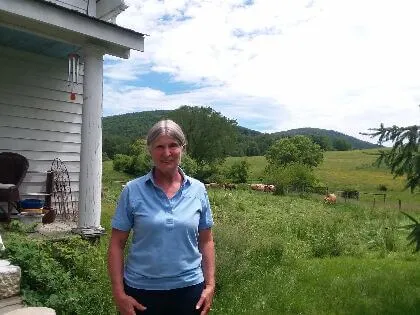What happens when the idea about who can be a farmer is a particular one? And then what happens if we use visual and digital storytelling to diversify that idea?
Those are two of the questions at the heart of the Who Farms? project. Since the fall of 2017, the Center has been part of a group exploring the lives and experiences of people with diverse identity and experience who are farming in Vermont. The partners include UVM’s Humanities Center, the Vermont Farm to School Network, Vermont Folklife Center, Vermont Historical Society, and The Root Social Justice Center. The project is funded by the National Endowment for the Humanities through their Creating Humanities Communities grant program, and several local generous families and foundations.
After an active time developing these partnerships, considering how stories can be told, and engaging in rich conversations about what sorts of themes we can explore, we are finally getting out into the field and meeting with storytellers. So this is where the work is taking shape - and getting exciting.
We had our first “shoot” with Cynthia and Rich Larson and their team at their beautiful grass-based dairy operation in Wells, Vermont earlier this month. They shared stories about family, their values, love for the land, community and the animals they raise, and we’re looking forward to shaping these conversations into stories to share to enrich our shared connection to farming and the sense of being part of this landscape.
Though the work is still in early stages, we already see clearly how rich the stories of farming and being on this land are here in Vermont, and on how much the themes of farming reflect the themes of our broader culture in these times - about community, love of land, access to resources, the natural environment, and both specific and shared cultural legacy in so many different ways. And we keep coming back to how much storytelling has the capacity to help us understand and connect with each other.
We will keep recording conversations, and they’ll eventually form the basis of graphic narratives (comic books) and digital stories, thanks to the participation of Eureka Comics and Across the Fence. These will then be shared with Vermont middle schools to integrate with their Farm to School programming and shared in community events. Please stay tuned!
And in the meantime…
We are so very close to our fund-raising goal to match the grant from NEH. If you’d like to help us narrow the gap, get in touch with any questions, or else make an online donation here.
